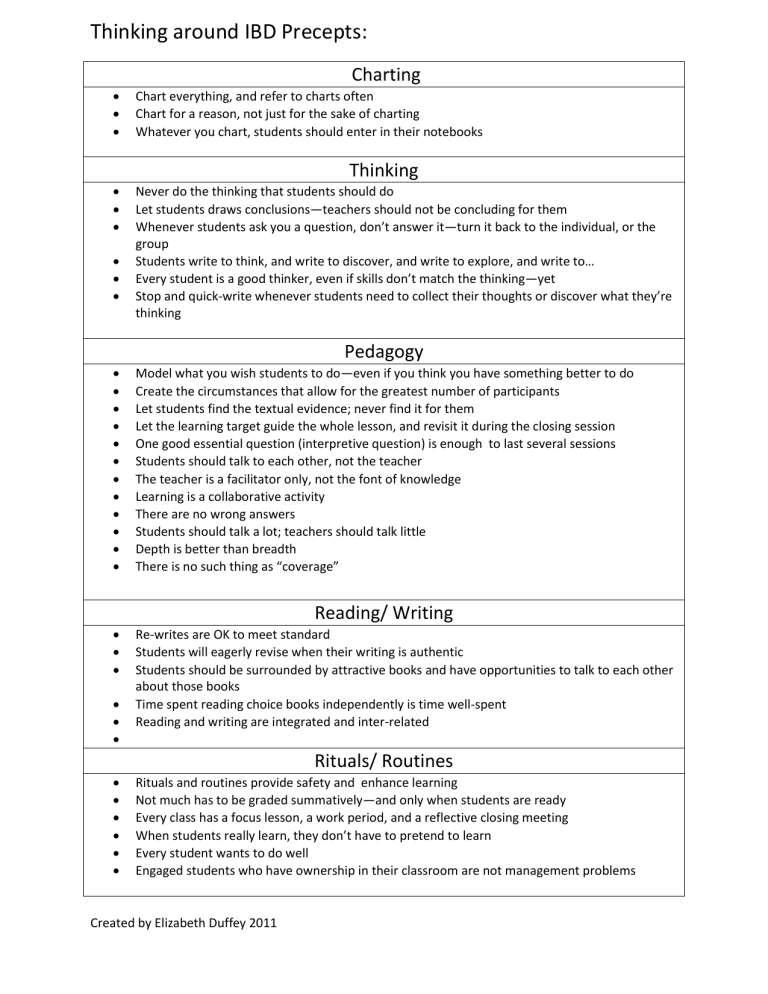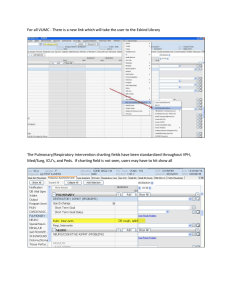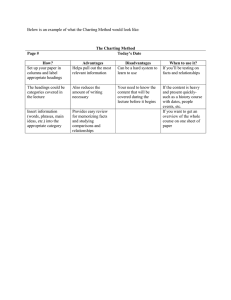Thinking About IBD Precepts
advertisement

Thinking around IBD Precepts: Charting Chart everything, and refer to charts often Chart for a reason, not just for the sake of charting Whatever you chart, students should enter in their notebooks Thinking Never do the thinking that students should do Let students draws conclusions—teachers should not be concluding for them Whenever students ask you a question, don’t answer it—turn it back to the individual, or the group Students write to think, and write to discover, and write to explore, and write to… Every student is a good thinker, even if skills don’t match the thinking—yet Stop and quick-write whenever students need to collect their thoughts or discover what they’re thinking Pedagogy Model what you wish students to do—even if you think you have something better to do Create the circumstances that allow for the greatest number of participants Let students find the textual evidence; never find it for them Let the learning target guide the whole lesson, and revisit it during the closing session One good essential question (interpretive question) is enough to last several sessions Students should talk to each other, not the teacher The teacher is a facilitator only, not the font of knowledge Learning is a collaborative activity There are no wrong answers Students should talk a lot; teachers should talk little Depth is better than breadth There is no such thing as “coverage” Reading/ Writing Re-writes are OK to meet standard Students will eagerly revise when their writing is authentic Students should be surrounded by attractive books and have opportunities to talk to each other about those books Time spent reading choice books independently is time well-spent Reading and writing are integrated and inter-related Rituals/ Routines Rituals and routines provide safety and enhance learning Not much has to be graded summatively—and only when students are ready Every class has a focus lesson, a work period, and a reflective closing meeting When students really learn, they don’t have to pretend to learn Every student wants to do well Engaged students who have ownership in their classroom are not management problems Created by Elizabeth Duffey 2011

